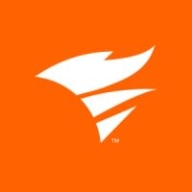

Dameware Remote Support and Microsoft Active Directory compete in managing IT environments. Microsoft Active Directory has the upper hand with its extensive features and integration capabilities.
What features are offered by Dameware Remote Support in comparison to Microsoft Active Directory?Dameware Remote Support offers remote control, troubleshooting, and ease of use. Microsoft Active Directory provides comprehensive user management, computer management, and robust integration capabilities. User reviews favor Microsoft Active Directory for its richer feature set.
What areas of improvement can be found in Dameware Remote Support in comparison to Microsoft Active Directory?Dameware Remote Support could improve integration capabilities, software update frequency, and user interface design. Microsoft Active Directory could benefit from simplified management tools, better user documentation, and enhanced reporting features. The identified improvement areas highlight unique challenges for each system.
How is the ease of deployment and customer service of Dameware Remote Support in comparison to Microsoft Active Directory?Dameware Remote Support is easier to deploy and has strong customer service ratings. Microsoft Active Directory’s deployment is more complex but is supported by robust customer service. Users find Dameware easier to set up, while Microsoft Active Directory’s support is equally commendable.
What setup costs and ROI can be seen with Dameware Remote Support in comparison to Microsoft Active Directory?Dameware Remote Support is known for its cost-effectiveness and good ROI, with manageable initial setup costs. Microsoft Active Directory has higher setup costs but is worth the investment due to its superior features, providing satisfactory ROI in the long run.
| Product | Market Share (%) |
|---|---|
| Microsoft Active Directory | 6.2% |
| Dameware Remote Support | 0.3% |
| Other | 93.5% |

| Company Size | Count |
|---|---|
| Small Business | 19 |
| Midsize Enterprise | 7 |
| Large Enterprise | 20 |
Active Directory stores information about objects on the network and makes this information easy for administrators and users to find and use. Active Directory uses a structured data store as the basis for a logical, hierarchical organization of directory information.
This data store, also known as the directory, contains information about Active Directory objects. These objects typically include shared resources such as servers, volumes, printers, and the network user and computer accounts.
Security is integrated with Active Directory through logon authentication and access control to objects in the directory. With a single network logon, administrators can manage directory data and organization throughout their network, and authorized network users can access resources anywhere on the network. Policy-based administration eases the management of even the most complex network.
We monitor all Active Directory Management reviews to prevent fraudulent reviews and keep review quality high. We do not post reviews by company employees or direct competitors. We validate each review for authenticity via cross-reference with LinkedIn, and personal follow-up with the reviewer when necessary.